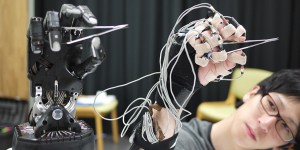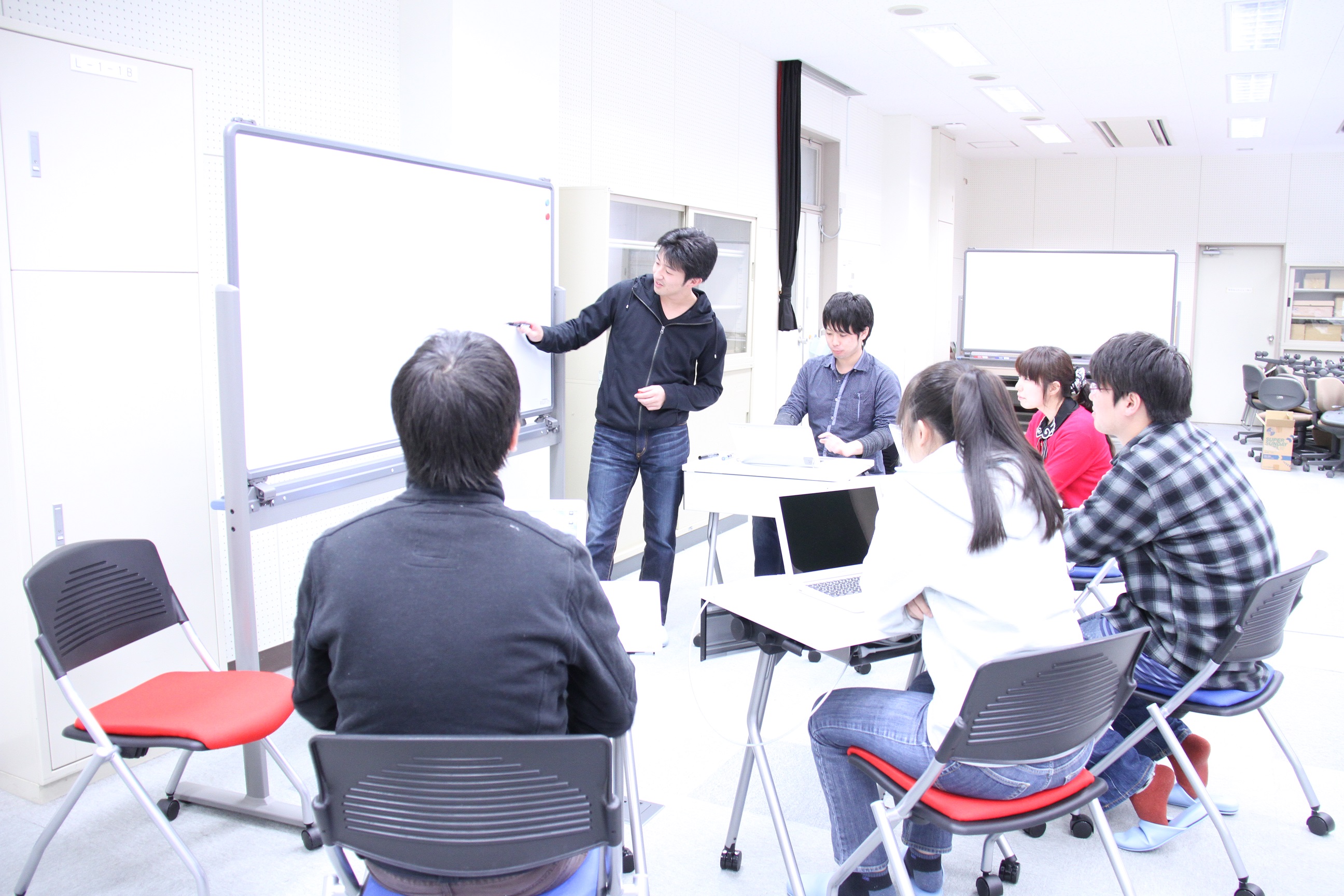Introduction
In the Human-Centered Computing Course, educational research is conducted in order to make the interaction and interactive operation between humans and computer systems possible, and to solve the problems faced by local communities. Focusing on human and computer interaction, welfare information engineering, image analysis, information communications and networks, students study computer science, the fundamentals of advanced application skills.
Course Features
 Currently we are facing a super-aged society, in response to the low birthrate and aging population it is necessary to address and solve various problems to realize a safe, secure society, and create new values. Conventionally, there are many situations in which people are required to conform to information processing systems, and in order to perform any functions operational training is required. In the Human-Centered Computing Course, students maintain an awareness (1) that the computing devices before them connect people to one another, (2) of reducing the restrictions of location and time as much as possible, (3) to make natural operation, tailored to the user’s personality, possible on computing devices, while considering the use of ICT that “allows people to show compassion to one another and to be kind”, and through the process of research and development of element technology we aim to cultivate human resources who combine this with the creativity that can be used on the global stage.
Currently we are facing a super-aged society, in response to the low birthrate and aging population it is necessary to address and solve various problems to realize a safe, secure society, and create new values. Conventionally, there are many situations in which people are required to conform to information processing systems, and in order to perform any functions operational training is required. In the Human-Centered Computing Course, students maintain an awareness (1) that the computing devices before them connect people to one another, (2) of reducing the restrictions of location and time as much as possible, (3) to make natural operation, tailored to the user’s personality, possible on computing devices, while considering the use of ICT that “allows people to show compassion to one another and to be kind”, and through the process of research and development of element technology we aim to cultivate human resources who combine this with the creativity that can be used on the global stage.
What kind of human resources are we training
 We are cultivating human resources who study areas such as human and computer interaction, applied bioinstrumentation, image analysis, pattern recognition, and embedded systems, and can participate on the global stage.
We are cultivating human resources who study areas such as human and computer interaction, applied bioinstrumentation, image analysis, pattern recognition, and embedded systems, and can participate on the global stage.


